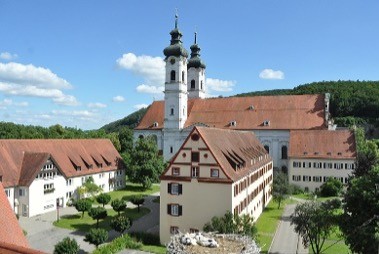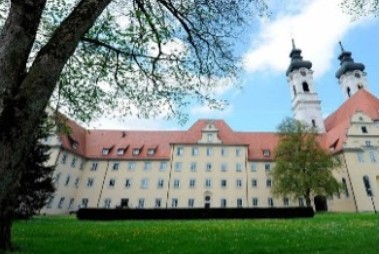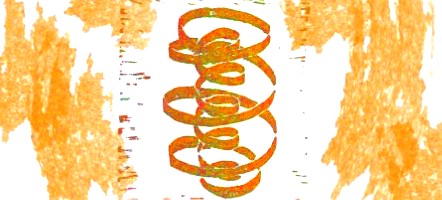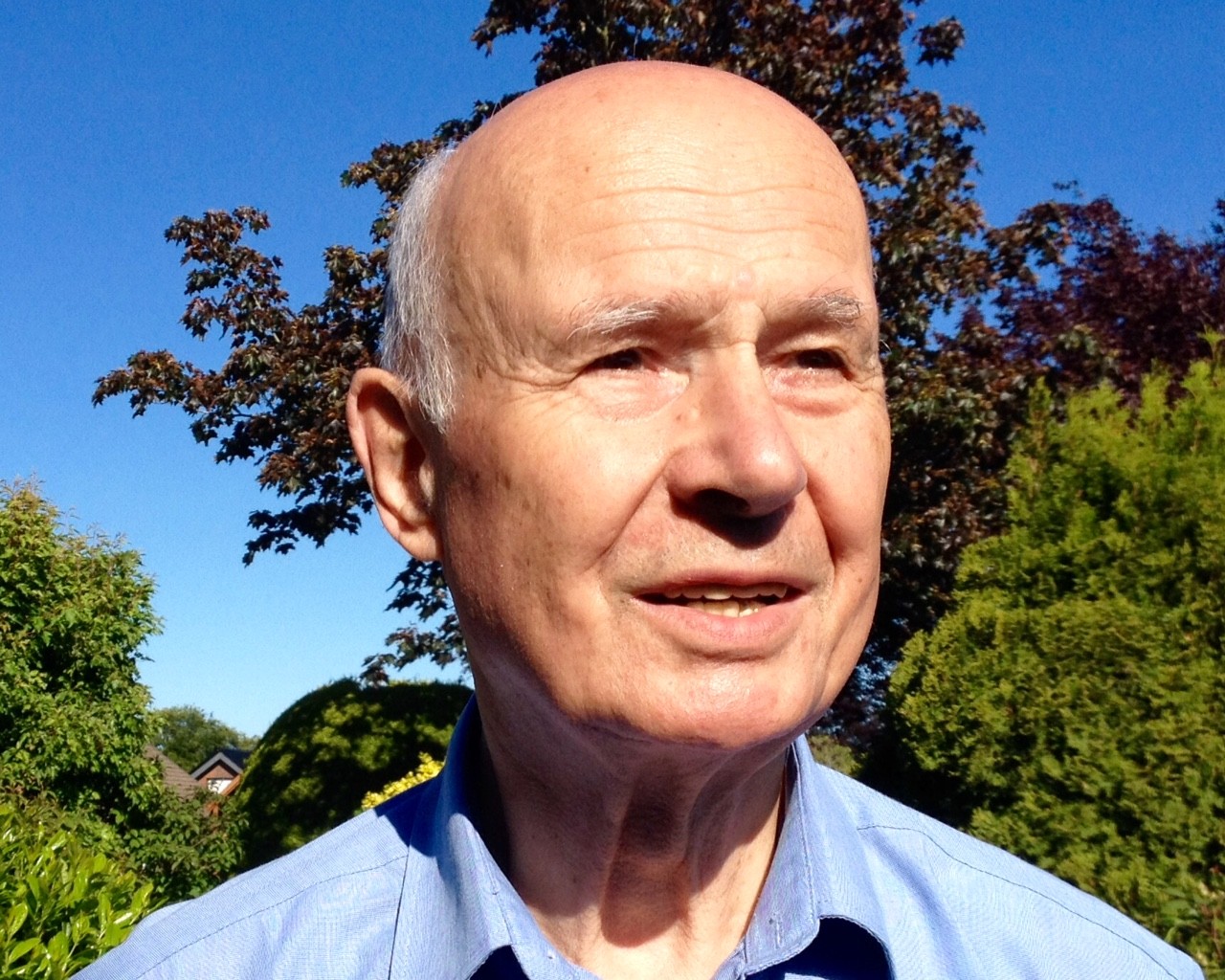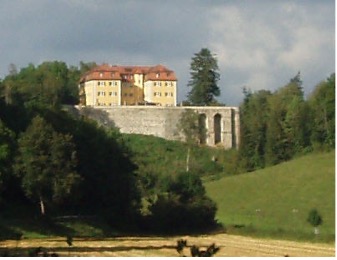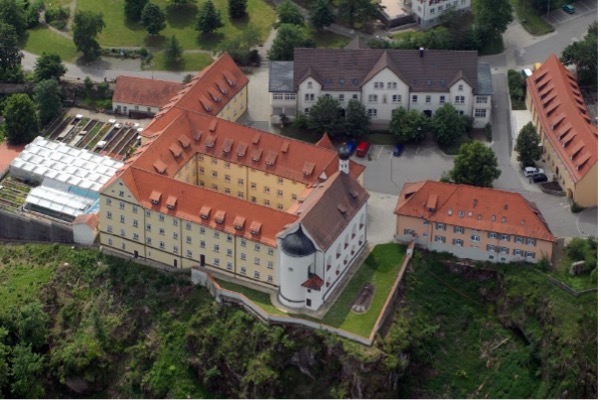In spite of two wonderful years of practical teaching I felt pressed to learn more about education and philosophy and to widen my knowledge. From 1964 until 1971 I studied the Eberhard-Karl University in Tübingen Education, Philosophy and History. My teachers in Education have been Otto Friedrich Bollnow, Andreas Flitner and Klaus Giel, also Willi Meyer and Friedrich Kümmel. In Philosophy Otto Friedrich Bollnow too and especially Walter Schulz, Johannes Schwartländer und Richard Schaeffler.
Just in the first two years happened a self-inflicted experience which burdened myself for a long time strongly. Because I had to give up my civil servant status as teacher when I started to study, I asked at the University for a scholarship which was allowed. But after the first term of support, I had to make an oral exam which should confirm my ‘earnest’ studies. I asked the assistant of Professor Bollnow , Dr. Braeuer, for this exam and got a date where the Professor also was present. The topics were about ‘philosophical anthropology’ which I personally liked very much. But I noticed during this oral test about the difference between ‘time’ (Zeit) and ‘temporality’ (Zeitlichkeit) and ‘space’ (Raum) and ‘spatiality’ (Raeumlichkeit) – these themes I still remember – that I wasn’t prepared enough or in other words, I experienced a lack of consciousness about the levels of daily thinking and reflecting in a philosophical way. The result was: I failed.
“Thinking back to these phenomena I become aware that already so early there was ‘something in myself’ – time and space – which wanted to be questioned, but my ‘sleepy consciousness’ couldn’t yet ‘become aware’ of such a latency!”
This was a very hard moment in my life. I still feel with all my body the sensations flowing through myself. I was disappointed, because the scholarship was stopped. But much more I felt deeply ashamed adverse my teachers.
There are reasons, why this happened. Firstly: The beginning of my studies after having taught for two years in a primary school was in so fare quite hard and somehow boring because of my studies in Philosophy and History I had – at that time – to present the so-called advanced Latin proficiency exam (Großes Latinum). My Highschool was more natural scientific and modern languages (French and English) oriented, so I never had learned Latin. Now I had to catch up on this ability in a very short time, exactly in two years. So, every day I was drilling hours and hours Latin. At the end to translate Livius was quite joyful.
Secondly: It is said that student’s life is tempting. I was tempted through the possibility to get a job in the Student Travel Agency run by the Student Committee. The task was to arrange cheap journeys in Europe during the semester break and to guide the students on them. My participation was free of charge. For four terms I did this and all my free time was focused on these activities. A really overstrained time. And thirdly it took time to recognize what it needed to dig for the treasures hidden in myself to be revealed.
Ashamed but not resigned I continued to study eagerly what Professor Bollnow was teaching. I was courageously to give a presentation in one of his seminars about ‘Temporality and Spatiality’ with the title: ‘Making a leeway – The Time-Loop’ (Das Nachholen des Versaeumten – Die Zeit-Schleife).
After the presentation was finished, Professor Bollnow asked me to stay for a few minutes. He spoke to me, saying that he would like to support me in my studies (from now on). This deep, undeserved trust gave me back the ‘faith in myself’ and I could find step by step to myself and I could ladle courage and power which continues until today. Later I found a connection to Professor Bollnow – intensified through our encounter in Japan – which I want to characterize as ‘paternal’.
‘Nature’ as ‘Culture’
During my studies at the Eberhard-Karl University in Tuebingen I was especially influenced by Max Scheler and Helmut Plessner – both acting as scientists also at this University – beside Arnold Gehlen. With their ‘cosmological view’ named as fathers of the ‘philosophical anthropology’. Plessners ‘eccentric positionality’ and Gehlens interpretation of man as a ‘Being with shortcomings’ (Maengelwesen) helped me to understand why the human being has to create a culture, an artificial or second nature to find its own positionality and to compensate what he lacks. Conclusion: From ‘nature’ man is a ‘cultural being’.
Anthropology
Bollnow himself developed a ‘anthropological questioning’ (anthropologische Fragestellungen) in the context of Education and called it ‘Anthropological Approach in Education’ (Anthropologische Betrachtunsgweisen der Paedagogik) or ‘Education from an Anthropological View’ (Paedagogik in anthropologischer Sicht).
An important role got in the 1950th philosophers like Jean Paul Sartres, Albert Camus, Gabriel Marcel and the phenomenologist Maurice Merleau-Ponty, who can be subsumed under the term ‘Existentialism’. I came in touch with them in my first teacher training epoch (1960-1962) when I read Bollnows book ‘Existence philosophy and Education’ (Existenzphilosophie und Paedagogik). I feel, from reading it came later the impulse to study in Tuebingen and to get in closer contact to Bollnow.
“Through these sketch-like remarks about a time between 1964 and 1971, the years I studied in Tuebingen, runs like a common thread what I later ‘discovered’ in Joseph Jaworskis hints: ‘Everybody is born with a destiny and the journey is to find it’ and to lean on David Bohm ‘…my life unfolds according to a transcendent order.
But my journey in those years resembled more a walk-through deep fog or a cruise on a heavy sea without Lighthouses and a clear direction.
From the bird-eye view today I become aware of this order which unfolded at that time and still reveals new traces, every day.
It was the crisis of a relationship with my classmate since High school days combined with those aspects of phenomena in human life as the anthropological questioning underlined which ‘guided’ me in the field of anthropological questioning in medicine and here to the practical medical work and scientific research of Viktor von Weizsaecker.”
Introduction of the Subject
I started a Doctor Thesis Project as a monography about the lifework of the medical professor Viktor von Weizsaecker. The title was: ‘The pathosophical thinking of Viktor von Weizsaecker. The contribution of the medical anthropology to an anthropological based Education’ (Das pathosophische Denken Viktor von Weizsaeckers. Ein Beitrag der medizinischen Anthropologie zu einer anthropologisch fundierten Paedagogik).
Viktor von Weizsaecker established with what he called ‘Introduction of the Subject into Medicine’ a new ‘gate-way’ to what we call the essence of the (ill) human being. Illness, being ill and becoming ill are ‘Organa’ to approach the human being and to dis-cover aspects until now not perceived: “Each illness is moral, each physiology theological, each anatomy mythical” but also “each guilt is mechanical, each fear chemical, each hate and each love energetic” (Dreher, 1974, p. 14). These views relating human and natural scientific fields let me sit up and take notice something new. A new Anthropology became apparent, a genetic-dynamic general view of man, including contemporaries and environment.
I must confess that for me as a person not taught and experienced in medical profession it was a very hard work to enter the world of psychosomatic medicine. I got much new knowledge, but a deeper re-cognition I found not until I entered the field of ‘Heil-Paedagogik’ (Special Education). What this study time accumulated have become ‘building blocks’ out of and for this ‘transcendent order’ which Jaworski mentions.
Gestalt-Circle (Der Gestaltkreis)
Weizsaeckers treatise ‘Gestalt-Circle’ influenced my way of thinking and gave me late in the 1980th and 1990th system theoretical impulse. The topic of the relationship to our body as ‘corporeity of our existence’, the body which’ we live in and inhabit’ as Merleau-Ponty put it and the Physicians Herbert Pluegge and Alfred Nitschke opened a new world of seeing humans. Those medical experts – today may be not known anymore – impressed me strongly.
Incarnate (Leibhaftig)
What I took from the work of those Physicians I condensed in the last phrase of my doctor-thesis: If Education doesn’t want to be behind time – as so often -, then it has to take the chance which offers the experience of the Logos-Incarnation in man and the spiritualization of its corporeity. Then Education meets the ‘incarnated man’ (leibhaftige Mensch). But it must be a transformed or just now transforming education (Dreher, 1974, p. 228). – ‘Incarnated’ (leibhaftig) could be a term also for today to underline the sensual perception of the other person. But it could also refer to this ambiguous essence of the body as Merleau-Ponty described as ‘inhabiting’. I have a body and I am my body. We live not only ‘in’ but also ‘à travers’, somehow through or diaphanous to the body. Looking back to this time of approaching such ‘strange’ views I notice that here are the roots that I could later near Aron B. Bodenheimer when Bollnow introduced him to me. Bodenheimers position, elaborated in his work (Elements of Relationship’ (Elemente der Beziehung), accompanies me still today.
“At this point it becomes clearer to me today, that Viktor von Weizsaecker, Merlau-Ponty, Bodenheimer ’prepared organs’ in myself which enables to overtake the task and chance today what it could mean ‘Seeing through the World’ as Jeremy Johnson express it.”
But frankly speaking when I came to an end of my Dissertation Project it was difficult to bridge to questions of Education practically and theoretically. So, I took an anchor in Georg Pichts thoughts – surely it was too shortcut, but for me the moment to set a point on my quite long studies and to take off for a new epoch in my life: Japan.”
Education as Therapy
Georg Pichts paper about ‘Education as Therapy for Society’ (Erziehung als Therapie der Gesellschaft’ served me to build a small ‘bridge between Medicine and Education’. Quoting a phrase: “To speak about humanity is only possible, where a partnership between strong- and week man, healthy and ill, just and unjust, believers and not believers realize, that without the other it’s impossible to exist, where each assigns dignity to the other and out of this freedom for all can grow up.” (Dreher, 1974, p. 227).
To understand such thoughts came later, when my ‘Path’ led me into the ‘Fields of Heilpaedagogik’ confronting me with the question about strong and weak. A question which follows me until today, but now – similar to Klaus Doerner – but the Fields widened to Economy, Society and Culture in general. In the beginning of the 1970th I only could sense that something old is breaking down and something New is going to emerge. All this was like a preparation of the ‘Project Inclusion’.
Education for mentally and severely handicapped persons (Geistigbehindertenpaedagogik)
What brought me to Cologne? Towards the end of my studies, I seized the suggestion of my doctor farther Bollnow to stay for some time in Japan. His close connection to this country opened the chance to follow my personal interest in Zen-Buddhism. From 1971-1975 I was teaching as a lecturer in the field of language training and German culture at the Reitaku University in Kashiwa.
It was in 1974 that I met a group of teachers of special education on an excursion to Japan. Coincidentally one of my former fellow students, Theodor Hofmann, now already advanced to a Professor of Special Education for mentally impaired in Reutlingen guided this group. How I came about to take note of this upcoming visit during a visit of myself in the Ashide-Gakkuen – a famous, 1970 from professor Miki established school and sheltered workshop for mentally retarded -, in January 1974 would be another ‘numinos particle’ of the ‘transcendent order’ shaping my life.
At that time Hofmann was offered a chair at the Paedagogische Hochschule Rheinland, Department Heilpaedagogik, in Cologne. (This Paedagogische Hochschule Rheinaland was 1980 incorporated as Heilpaedagogische-Faculty into the Albertus Magnus University of Cologne) Just starting to form a team for this new work and knowing me from our joint study years he asked me if I would be interested to share his new task as an Assistant (Akademischer Rat). Consequence: At the beginning of the summer term 1975 I found myself in front of a group of about 80 students. Most of the students have been already teachers for different school types, but now they had changed to schools for mentally retarded and they wanted a post-qualification in special education.
